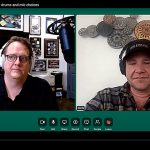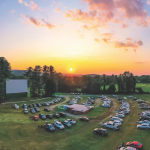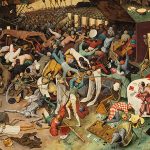FRONT of HOUSE runs this business column because the publisher, the editor and I have all long agreed that all the cool gear and all the technical expertise in the world alone won’t make someone’s career successful, unless that person develops some business chops. Increasingly, the rest of the live-sound universe agrees.
Business classes are slowly making their way into pro-audio education programs at schools in the U.S. Meanwhile, the most non-gear info you used to get at pro audio shows was the occasional hearing test; these now offer seminars focusing on topics like insurance, healthcare and other personal aspects of life. Thus, it’s satisfying to report that at least one stand-alone event is now predicated solely on the business and personal elements that are necessary to balance a career in a high-tech and volatile field like live-event production. In mid-November, the third annual Touring Career Workshop took place, in Nashville’s Soundcheck rehearsal facility. This year’s event attracted 150 people, which is three times the number at the first one in 2011, further suggesting a growing awareness that there’s a lot more to a career than just knowing how to twirl the knobs.
The Price Is Right
The three-and-a-half-hour-long event is the brainchild of Chris Lisle, a lighting designer on tours for Miranda Lambert, Lee Brice, One Republic and others, but the event attracted an audience that was a cross-section of the touring business, including production managers and stagehands, and with plenty of representation for FOH mixers and other audio folks. The price was right — it was free, as it’s been for the last three years, with costs picked up by sponsors — but the knowledge imparted was invaluable. There were sessions and presentations on everything from staying safe on the road to financial planning, stress management, accounting, entrepreneurship, health care, fitness and more. The point, says Lisle, is to educate those in the music touring industry on how to maintain long-term financial and personal stability in what is an ever-changing economic environment.
“After 20 years in the touring industry, I started to notice friends of mine who were among the early generation of [touring workers who] had not prepared very well for their latter years,” comments Lisle. “It was hard for me to watch them struggle with health and financial problems, so I thought to myself, ‘What could have been done to prevent this?’”
There’s no shortage of outlets through which someone can get up to speed on a lighting board or FOH console, but the opportunities to learn personal business management techniques and raise awareness about the toll that touring can take on individuals, marriages and families are few and far between. This isn’t peculiar to the live-event industry — most high schools still don’t include how to balance a checkbook in their math curricula. And there is a cultural constriction on discussing how personal and emotional issues affect professional careers. A similar syndrome is illustrated in how the NFL made players’ complaints about the effects of repeated concussions a shaming offense until media exposés brought the problem into the light of day and helped remove the stigma. The presentations at the Touring Career Workshop — “Accounting & Setting Up as a Business;” “Not Just a Man’s World — Women in Touring;” “Health Insurance Planning;” “MusiCares & Stress Management;” “Navigating Relationships;” “Health & Fitness on the Road;”
“Per Diem & Write-Offs;” “Life Coaching” — are prosaically titled without a hint of market-speak, but that’s exactly what’s needed to underscore their day-to-day value.
The workshop’s keynote address was also timely. Jim Digby, production manager for Linkin Park and founder of the Event Safety Alliance, focused on how to keep crew and audience members safe when it comes to stage assembly and breakdown, and how to best avoid accidents and promote safety in concert production.
Audio professionals were well represented. Live-sound mixer and AV integrator Eric Elwell presented what Lisle says was the top-rated session of the day, on making the event business into a long-term career. Todd Ortmeier, production manager for Miranda Lambert and an FOH mixer himself, moderated a Q&A on the same subject. Shane Hamill and his wife, Sara, both touring pros, managed the marriage-on-the-road panel. Spectrum Audio was one of the corporate sponsors.
In fact, other than a few presenters who were in the outside fields they were speaking on, such as health insurance and accounting, much of the program was presented by, well… us — the same people who live and work touring every day. These people have stepped back a bit, taken a broader view of what it’s really all about and shared that experience and wisdom with everyone else. Collateral to that, Lisle says next year will mark the start of mentoring program that will pair neophytes with veterans who will coach on topics like those at the workshop. “It might be once a month a couple of people will meet at a Starbucks, but that’s all it needs to be,” says Lisle.
This willingness to share knowledge is not new to the touring business, but what has been lacking is a venue through which these kinds of connections can be made. The workshop fills that need very nicely. And it’s happening at the right time: as live music continues to grow in importance for the entertainment industry, the stresses that come with it will also be exacerbated. Fostering a greater sense of community, like these workshops do, is a welcome remedy and a great way to start the New Year.



